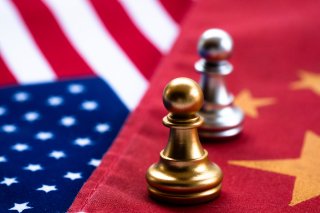Gutting the Gimmickry in U.S.-China Relations
Why everyone should be reading, and debating, Jonathan D.T. Ward’s The Decisive Decade.
Last month, a Reuters/Ipsos survey revealed bipartisan majorities among Americans in favor of increased tariffs on Chinese products. Sixty-six percent of those consulted expressed a greater inclination to support a candidate in the upcoming 2024 presidential election if that candidate commits to imposing additional restrictions on free trade. Notably, prominent figures within the GOP, vying for the party’s presidential nomination, such as former President Donald Trump, Florida Governor Ron DeSantis, and former UN ambassador Nikki Haley, have all called for the termination of permanent normal trade relations with China.
In the meantime, The Decisive Decade makes current U.S. policies toward the PRC look like gimmickry. In the wake of the Biden administration’s “small-yard, high-fence” approach, authorities responsible for export controls are falling short in their efforts to prevent crucial, dual-use technologies from being transported, whether directly or indirectly, to adversaries. A recent Congressional Research Service report brought to light that the Bureau of Industry and Security within the Department of Commerce approved a staggering 97.9 percent of the items listed on the Commerce Control List to be exported to China without requiring a license.
That statistic is not an outlier. Congress reported that, in 2020, the same bureau denied a mere 2.2 percent of exports of software and technology to China. Shockingly, the House Foreign Affairs Committee exposed that in 2022, that bureau also gave the green light to over $23 billion worth of licenses that permitted technology exports to blacklisted Chinese entities. During the same timeframe, export control authorities rejected only 8 percent of such licenses for blacklisted entities. Huawei and Semiconductor Manufacturing International Corporation, two of the PRC’s national champions, collectively obtained export licenses totaling over $100 billion in value.
Observers of Secretary Raimondo’s visit might wonder where all of this is headed. Historical analogies of the kind Ward proffers provide little comfort. “Often in an interwar period,” he notes, “the success of global commerce leads to delusions of stability between states.” He chides that “business leaders were then, as now, carried away by wishful thoughts of commerce as a means to pacify dangerous nation-states.” Gimmicks purveyed by President Biden’s administration might be another symptom of that recurring penchant for bien pensant policies. The Decisive Decade points the way to avert disaster.
George E. Bogden is an Olin Fellow at Columbia Law School and a Senior Visiting Researcher at Bard College.
Image: Shutterstock.

